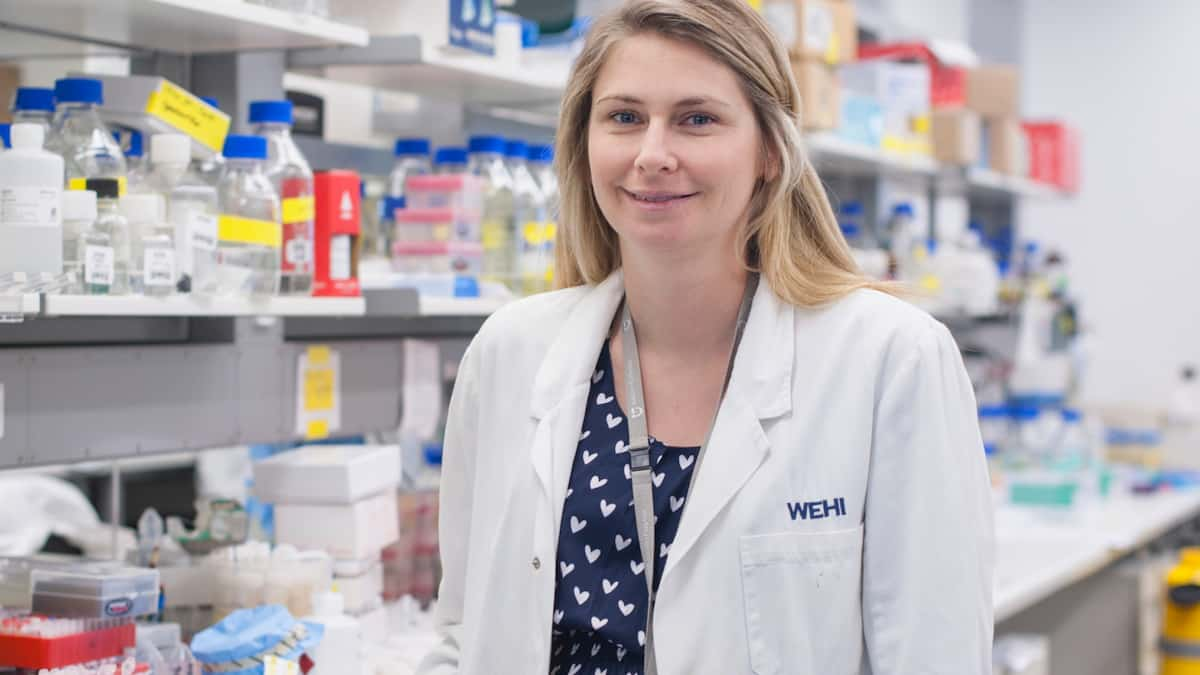Developing new treatments for Burkitt’s lymphoma
The Leukaemia Foundation is funding research aimed at advancing treatment for a blood cancer called Burkitt’s lymphoma (BL), thanks to the generous support of a major donor who has survived this aggressive blood cancer.
There is a need for alternative therapies for people with BL, according to Dr Gemma Kelly, a senior postdoctoral research scientist at the Walter and Eliza Hall Institute (Melbourne).
Dr Kelly and Professor Andreas Strasser received a two-year Grant-in-aid of $250,000 towards investigating a new anti-cancer drug to treat BL.
“Our research focuses on a group of lymphomas driven by abnormal expression of a gene called MYC of which Burkitt’s lymphoma is the most well-known example,” said Dr Kelly.
“It is a very aggressive disease. The good news is many patients with this disease respond well to conventional chemotherapy but they need aggressive treatment, which some people are unable to tolerate.
“And if the patients do not respond or they relapse, there are not many alternative therapeutic options for them,” she explained.
“I work in the Blood Cells and Blood Cancer Division, headed by Professor Strasser, and we are trying to understand the control of the pathways to cell death with the objective of manipulating them specifically with therapeutics to make lymphoma cells die.
“We have found that Burkitt’s lymphoma cells are highly dependent on a pro-survival protein called MCL-1 and that if we take this protein away using genetic tricks in the laboratory, the lymphoma cells die very rapidly.
“This finding identified MCL-1 as a therapeutic target for these particular lymphoma cells,” said Dr Kelly.
Manageable side effects
“More recently, we have tested the efficiency of a drug that targets MCL-1 in our pre-clinical models of lymphomas and found it to be very efficient at killing Burkitt’s lymphoma cells, and the side-effects to healthy tissues appeared manageable,” she said.
“A lot of our work has been in cell lines established from these Burkitt’s lymphomas.
“We now want to generate pre-clinical models that allow us to test how efficient pharmacological MCl-1 inhibition is in primary biopsy samples from Burkitt’s lymphoma patients and patients with other MYC-driven lymphomas and leukaemias,” said Dr Kelly.
“We wouldn’t be able to do the kind of research we want to conduct if not for the very generous research grant we received from the Leukaemia Foundation.
Clinical trials
“We do not know the answers to our biological questions; so we do not know what will happen,” said Dr Kelly about the nature of research.
“You get answers to the questions you set out to address but such studies frequently will also open up many more possibilities for further experiments to address new important questions about lymphoma and leukaemia for which it will be exciting and important to get the answers.
“Excitingly, MCL-1 inhibiting drugs have recently entered clinical trials, including in Melbourne, for the treatment of acute myeloid leukaemia and myeloma. Time will tell whether they will be successful in patients.”
“We hope our research will really help to progress the search for alternatives for patients with Burkitt’s lymphoma who are unable to tolerate chemotherapy and those who relapse with this disease” said Dr Kelly.
